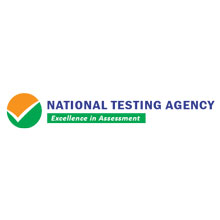What is Foreign Trade
Foreign Trade can be defined as the exchange of capital, goods, and services with foreign countries. Earlier, the concept of foreign trade was not popular, but, with globalization and liberalization, foreign trade practices have become very popular.
This practice of trade between countries has led to the creation of innumerable opportunities all over the world. Foreign trade is also known as – International or Global Trade. Foreign Trade is a very wide concept and has various aspects such as Imports, Exports, Trade Policies, Foreign Trade Regulations, and International Business Laws.
Foreign Trade is a part of economics, and it plays a major role in determining the position of the international economy. There are several colleges and universities that provide courses and degrees in foreign trade.
Foreign trade is a general practice that every country has to do. No country in the world is self-sufficient and is available with all the resources. Countries have to import goods and services by getting involved in foreign trade. Therefore, Foreign Trade is very important not for a particular country but the entire world. As a result, there are great career opportunities, and one can find ample job opportunities in this sector. If you are a student and interested in this field then, there are many academic courses through which you can make a career in this field.
Courses relating to this sector focus on commerce background and are very popular among the commerce stream students. But there is no such restriction on the entry of students from any other streams. This means that students from Arts, Science, or any other background are also eligible to pursue qualifications in Foreign Trade.
Below is the list of some Foreign Trade courses in India at different levels
Bachelor's Degree courses are pursued at an undergraduate level. Students opt for these courses after completing their minimum 10+2 educational qualification. BBA in International Business, BBA in Foreign Trade, BA Foreign Trade, and B.Com. Foreign Trade is some of the bachelor's degree courses in India.
Master's Degree courses are pursued at a postgraduate level. Students opt for these courses after completing their bachelor's degree course in the relevant field. MBA in International Trade, MBA in Foreign Trade, and MA Foreign Trade. are some examples of the Master's degree courses in India.
PG Diploma and certificate courses are pursued by students at the postgraduate level. PG Diploma in International Trade, Advanced Diploma in International Business, and PG Certification in International Trade. are some examples of courses offered in India at this level.
Doctoral programs PhD in Foreign Trade and M.Phil. in Foreign Trade are the doctoral programs available in India in the field of foreign trade.
Eligibility Criteria (UG & PG) of Foreign Trade
The students must complete the following criteria to be eligible for Foreign Trade courses at different levels:
Eligibility Criteria for Bachelor's Degree courses
Students having a minimum of 10+2 educational qualification are eligible to pursue bachelor's degree courses. These courses are usually 3 years long.
Eligibility Criteria for Master's Degree courses
Candidates who have graduated in the relevant field from a recognized college or university are eligible to pursue Master's Degree courses.
Candidates are also required to give relevant entrance exams to get admission to the college or universities, and these courses are usually 2 years long.
Eligibility Criteria for PG Diploma courses
Candidates who have graduated in the relevant field from a recognized college or university are eligible to pursue PG Diploma courses. These courses are usually for 1-2 years.
Eligibility Criteria for PG Certificate courses
Candidates who have graduated in the relevant field from a recognized college or university are eligible to pursue PG Certificate courses. These courses are usually for 6-12 months.
Eligibility Criteria for Doctoral programs
Candidates who have completed a Master's degree in a relevant field are relevant to pursue relevant Doctoral programs.
Entrance Exams for Foreign Trade
The entrance exams for getting admission in this sector vary from one another as it depends on the level and the course you are applying for. Generally, various types of common entrance exams are held to get admission to different types of colleges and universities, but some institutes have their separate entrance exams.
Although the entrance exams are different depending upon the course and level, the basic pattern of the exams is almost the same. Students get a multiple-choice objective-based question paper written in the English Language. The topics in these entrance exams are also the same to some extent as it includes topics such as – Quantitative Analysis, Logical Reasoning, Mathematics, English, and General Awareness.
Below are some of the national-level entrance examinations for getting admitted to MBA Colleges specializing in Foreign Trade:
Indian Institute of Foreign Trade (IIFT) is an entrance exam conducted annually for admission to foreign trade courses.
Common Admission Test (CAT) is a national-level entrance exam administered by Indian Institutes of Management conducted for admissions in colleges providing Master's courses.
Management Aptitude Test (MAT) is a national-level entrance exam administered by All India Management Association conducted for admissions in colleges providing Master's courses.
Graduate Management Admission Test (GMAT) is conducted across approximately 650 test centres in 114 countries, and its score validation is for 5 years. It is administered by the Graduate Management Admission Council and is conducted for admissions in colleges providing Master's courses.
College Predictors VIEW ALL
Scope of Foreign Trade in India and Abroad
Career opportunities for qualified professionals in the field of foreign trade are increasing day-by-day at a high rate.
Big companies, manufacturers, government institutions, financial institutions, and other agencies all over the world are continuously hiring professionals for carrying out their foreign trade practices. As a result, qualified professionals in this sector have enormous opportunities both – in India and foreign countries.
There is a huge scope in this sector due to the involvement of international companies and also due to the availability of diverse job profiles. Candidates can get the opportunity to work on international projects, or they can also be assigned the role of a Foreign Trade manager and many other high-profile roles.
Course Fees Foreign Trade
| Minimum Fees | Maximum Fees | |||
|---|---|---|---|---|
| Private | Government | Private | Government | |
| UG | ||||
| PG | ||||
| DIPLOMA | ||||
Course Subjects
Below is the list of some of the subjects taught in the courses of foreign trade:
India's Foreign Trade
Basics of International Trade
Elements of Export Marketing
Exports Finance, Documentation, and Procedure
Export Logistics
Global Business Environment
Accounting for Managers
Managerial Economics
World Trade Organisations
Export-Import Management & Policy
Foreign Language
Personality Development
Financial Management
Computer Application in Foreign Trade
Quantitative Techniques for Foreign Trade
Global Business Communication and Public Relations
International Economics and Trade Theories
Export-Import: Procedure and Documentation
India's Foreign Trade: Trends, Prospects, and Strategies
Statistical Analysis and Research Methodology
Foreign Exchange and Exchange Control
International Business Laws
Insurance and Risk Management in Foreign Trade
International Human Resource Management and Organisational Behaviour
Multinational Financial Management
EXIM Financing
International Marketing Management and Consumer Behaviour
Projects
Practicals
Note: Actual syllabus or subjects may vary depending on college or universities, courses, specialization, and various other factors.
Careers in Foreign Trade
Candidates can expect higher salary packages from private companies and MINUs in this sector than other agencies and institutions.
With various reforms such as globalization and liberalization, opportunities in this field are growing faster and promising great earning opportunities to qualified professions all over the world. In India, the salary of a fresher qualified candidate is up to Rs. 4 lakhs p.a. (Approx.).
The salary of foreign trade professionals can be further increased based on expertise, company, and experience. With good experience and high-level expertise, professionals can earn a salary of up to Rs. 15 lakhs p.a. (Approx.).
Students also liked
Upcoming trends
In the past few years, both international trade and the economy have grown tremendously. There has been a huge growth in the trade sector all over the world and is expected to grow more in the coming years.
It has not been many years since India reduced its restrictions in the globalization and liberalization policies but, still, the foreign trade sector of India is very developed.
Trade opportunities are continuously growing in India at an increasing rate, and as a result, more international companies are getting attracted to trade with India. These large scale trade practices of India with foreign companies have led to an increase in the demand for international trade experts. Therefore, there is a great opportunity for students to make a career in foregin trade sector. Candidates in this field ultimately get international exposure, in-depth business knowledge, high-paid jobs, and a lot more.
Job Profiles and Top Recruiters
Foreign Trade: Job Profiles
Professionals in foreign trade sector have opportunities to select from a wide range of job roles. As international trade is a wide concept and is a very vast field, there are a lot of works that the companies have to deal with while trading with foreign countries.
Various aspects of foreign trade such as import, export, documentation, and law offer diverse job roles to the candidates. They also get the choice of working in either Government or the Private sector, within or outside a country. Below is a table showing various job positions along with its description:
Job Position | Description |
The job of the marketing manager is to implement correct policies and strategies to increase the profit margin of the firm. They also look after raising the market and brand value of the firm. | |
Their job is to develop strategies, find the sources of finance, analyze the financial policies to get a proper return on investment and capital. | |
Finance Manager | They look after and manage all the financial aspects of the firm. |
They are responsible for keeping records of all the assets, liabilities, inflow, outflow, loans, debts, and other important activities of the firm. | |
Foreign Trade and Business Analyst | Their role is to analyze the business and its performance by keeping in mind the various market mechanisms. |
International Business Consultant/ Foreign Trade Consultant | Their job is to analyze the firm's operations and give solutions to gain success in the international market. They also aim to provide consultation and provide improvements to raise the profit margins of the firm. |
Top Recruiters
Some of the areas in which candidates are employed after completing qualifications in Foreign Trade:
Logistics Firms
International Trading Firms
Supply Chain Management Firms
Government Departments (Customs, IMPEX)
MNCs (Multinational Corporations)
Port Trusts
Consultancies
Import & Export Agencies
Government institutions and companies regularly conduct recruitment drives for foreign trade professionals, and several job profiles are offered annually. Some of the most popular companies that hire professionals are listed below:
Walmart
Standard Chartered Bank
Citigroup, Prada
Morgan Stanley
Goldman Sachs
Popular Online Finance Courses and Certifications
- Online Banking And Finance Courses
- Online Finance Courses
- Online Fintech Courses
- Online GST Courses
- View All Online Finance And Accounting Courses
Average Salary
The starting salary of a Foreign Trade professional depends upon several factors. Some of the prominent factors are –
Institute from which the candidate has completed the qualification
Level of course
Level of expertise and specialization
Choice of the domain in the foreign trade sector
Country
Below is a table showing the average salary per annum offered in different job roles in the field of foreign trade:
Job Profile | Average Salary per annum |
Marketing Manager | Rs. 5.5 – 6.5 lakhs p.a. (Approx.) |
Financial Advisor | Rs. 5 – 6 lakhs p.a. (Approx.) |
Financial Manager | Rs. 4.5 - 5.5 lakhs p.a. (Approx.) |
Accountant | Rs. 4 – 5 lakhs p.a. (Approx.) |
Business Analyst | Rs. 3.5 – 4.5 lakhs p.a. (Approx.) |
Required Skillset for Foreign Trade
Companies while recruiting foreign trade course candidates in their company look for relevant skills in them. Skills act as a base for the candidates and also helps them to get fit in different job roles. Therefore, candidates must focus and try to develop the required skill set in a particular sector. Below are some of the skills which a candidate should have to opt for a course in this field:
Good communication skills – Students should be able to communicate effectively with others during the course as well as during the job.
Good interpersonal skills – Students should have good interpersonal skills to pursue courses in this field. Students should have skills such as teamwork. Leadership, patience, and dependability responsibility.
English – Students should be fluent in both spoken and written English.
Relevant interest – Interest or expertise in the matters of business or trade are helpful for students pursuing courses in this field.
Additional skill – Good knowledge of marketing, customer service skills, multitasking, management, sales, and other related subjects are add-ons.
Course Curriculum for Foreign Trade
Curriculums of these courses are designed in such a way that the candidates get in-depth knowledge about various components of the sector.
Although the subjects are quite similar in foreign trade courses, the level of difficulty keeps on increasing at different levels.
The curriculum aims to provide students with the required knowledge about components such as business administration, finance, trade, and marketing, of both national and international levels.
At the basic levels, students are provided with a basic knowledge of the field but, in masters or other higher levels candidates are provided with a specialized in-depth concept both theoretical and practical. The main focus of all the curriculums in the courses at different levels is on foreign trade.
Popular Foreign Trade Entrance Exams in India
Frequently Asked Questions (FAQs)
Question: Which are the famous institutions providing Foreign Trade courses in India?
Answer :
Some famous institutions providing Foreign Trade courses in India are:
Indian Institute of Foreign Trade
Jamia Millia Islamia University
National Institute of Export Management
Indian Institute of International Business
Question: What is the working hour of a Foreign Trade professional?
Answer :
The working hours vary depending upon various factors such as country, job role, and many others. But, generally, professionals in this field have to work for appx. 6 - 8 hours per day and international trade specialists have to work full-time.
Question: What are some of the highest paying careers or job profiles in the field of foreign trade?
Answer :
Below are some of the highest paying job profiles in the field of foreign trade:
International Trade Finance Manager
International Trade Researcher
Global Marketing Manager
Global Trade Lawyer
International Business Development Manager
Question: What is the key difference between domestic trade and foreign trade?
Answer :
Domestic trade is the trade between two or more states, cities, or regions within the boundaries of a country, whereas, foreign trade is the trade between two or more countries.
Domestic trade does not have any impact on the value of the national currencies. While foreign trade practices have a direct impact on the value of the national currency of any country.
The calculation of taxes and practices involved in making a domestic trade is much simpler than foreign trade.
Question: Is pursuing foreign trade courses a good career option?
Answer :
Pursuing a career in the foreign trade sector is a good option due to several reasons:
It offers you opportunities and job profiles of a wide variety such as banking, commerce, finance, and accounting.
It gives you immense knowledge about the business world and provides you with great opportunities at an international level.
You get a higher number of job opportunities as well as good earning in this field.
































